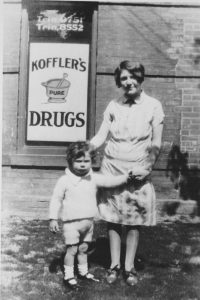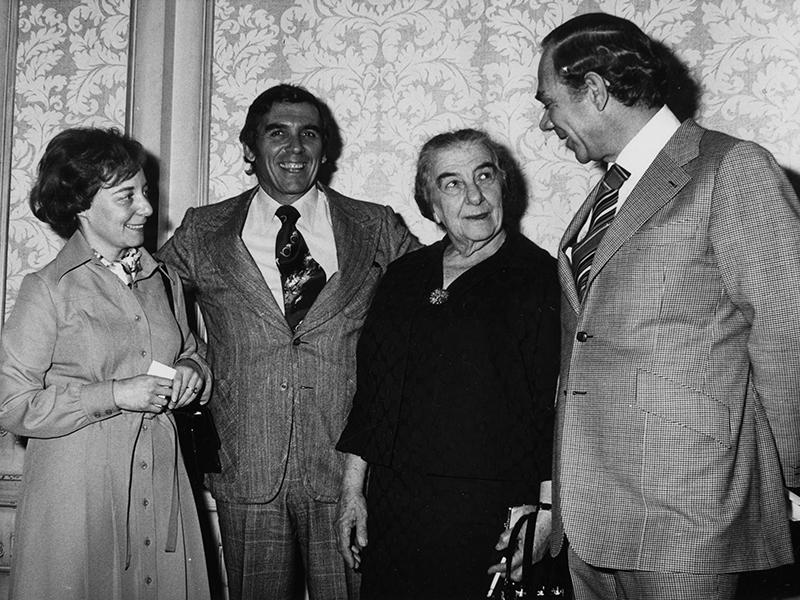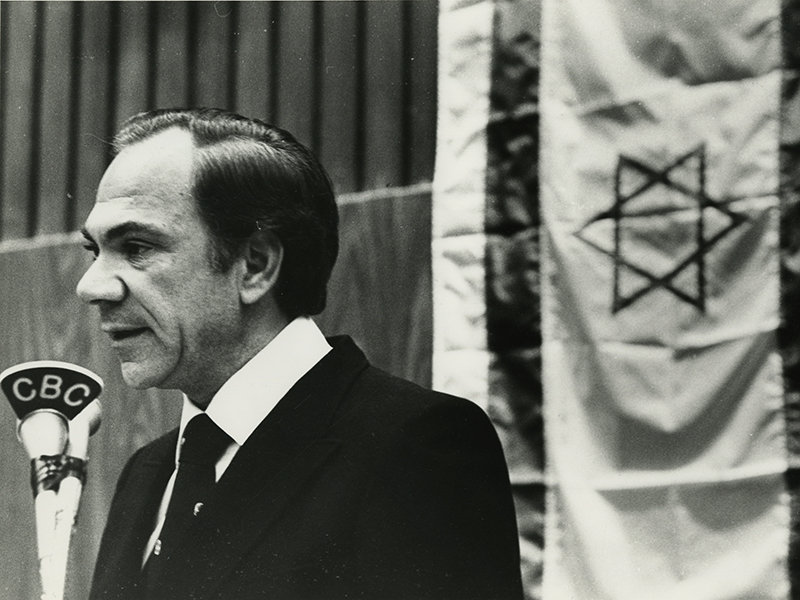Recalled as a visionary who realized possibilities that were previously unimaginable, business icon, arts patron and philanthropist Murray Koffler died in his Toronto home on Nov. 5. He was 93.
Koffler took over his father’s Toronto pharmacies when he was just 17 years old, following his death. He founded the Shoppers Drug Mart chain, but referred to himself as “just a simple pharmacist.”
In 1971, Koffler was among a group of business leaders who purchased The CJN and positioned it as a newspaper for the entire community.
READ: ISADORE SHARP – CAPTAIN OF THE HOTEL INDUSTRY
Murray Bernard Koffler was born on Jan. 22, 1924, in a four-room flat over his father’s drugstore on College Street in Toronto, the only child of Leon and Ernestina Koffler, Jewish emigres from Romania.
Murray Koffler was still a student at Oakwood Collegiate, when he took over his father’s two pharmacies. He later completed a degree in pharmacology from the University of Toronto in 1946 and opened his first drugstore within 10 years.
Koffler pioneered several retailing practices that are taken for granted today. He followed the self-service grocery store model of putting more products on the shelves and having central checkout counters, and focused on health and beauty products.

He also pioneered the franchise system, in which each of his associates enjoyed the benefits of ownership. In 1962, the chain officially became known as Shoppers Drug Mart.
By 1975, there were 250 stores across Canada. Shoppers remains the largest network of its kind in the country and one of the largest in North America.
It was sold to Imasco and then acquired by Loblaw for $12.4 billion in 2013. Koffler’s son, Leon Koffler, started Israel’s Super-Pharm chain in the 1970s, extending it all the way to Poland and China.
At the age of 21, Murray Koffler visited Lake Simcoe, where he asked Sam Seligman about the 15-year-old girl on a raft. “That’s my little sister,” Seligman told the dashing young man. “Leave her alone.”
Koffler didn’t heed the warning, eventually marrying Marvelle Seligman in 1950. The couple gave their name, time and money to support many causes, including pharmacy management, scientific and medical research, the arts, the prevention of drug abuse and programs for aboriginal Canadians.
Koffler’s philanthropic endeavours include the Koffler Accelerator at the Weizmann Institute of Science in Israel, as well as the Murray Koffler Urologic Wellness Centre and the Marvelle Koffler Breast Centre, both at Mount Sinai Hospital in Toronto.
He also served on the board of governors of the Canadian Council of Christians and Jews, as well as those of Mount Sinai Hospital, the United Jewish Welfare Fund and the Jerusalem Foundation, and is a past chairman of the United Jewish Appeal.

Koffler also co-founded the Four Seasons Hotel chain with friends Isadore (Issy) Sharpe and Eddy Creed, even though initially, according to Sharpe, “None of us … knew anything about the hotel business.”
Koffler was co-founder of Temple Emanu-El. He was appointed to the Order of Canada in 1977 and promoted to an officer in 1996.
He was a personal friend of former prime minister Pierre Trudeau and entertained royalty at his Jokers Hill estates near King City, Ont. In the most valuable land gift ever given to a Canadian university, the family donated its equestrian estate to the University of Toronto, to create the Koffler Scientific Reserve, a biological field station used for educational and research purposes.

Koffler was also a sports enthusiast with a passion for skiing, tennis, golf and sailing. One day, while jogging through Edwards Gardens in Toronto, an outdoor bathroom facility caught his eye. He had recently purchased property in Collingwood, Ont., and envisioned a design for a ski chalet. He called the city and got the name of the young, unknown architect, Raymond Moriyama. Koffler enlisted Moriyama – who went on to design the Ontario Science Centre and other iconic buildings – to design his chalet, based on an outhouse.
The Kofflers founded the Koffler Centre for the Arts in 1977. Forty years later, the centre’s activities extend to Artscape Youthspace in downtown Toronto, touring exhibits, high school outreach programs and lecture series.
Frank Rasky, who covered the arts scene for The CJN in the 1980s and ’90s, profiled Koffler for a local Jewish magazine. Koffler then commissioned Rasky to write his autobiography, Just a Simple Pharmacist.
As the 2013 CFP Pillar of Pharmacy Award winner, Koffler quoted from actress Susan Hayward’s A Guide for the Advanced Soul, saying: “It is good to have an end to journey towards. But it is the journey that matters in the end.”
Koffler is survived by his wife, Marvelle, their children (Leon, Theo, Tom, Adam and Tiana) and 18 grandchildren.







